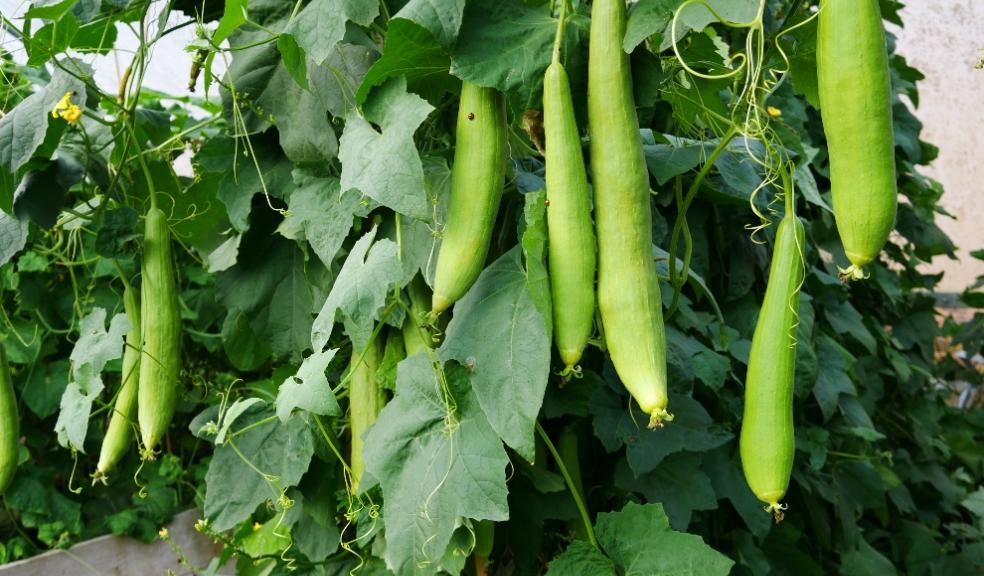
National Trust launches ‘grow-along’ to help home gardeners grow their own plastic-free kitchen sponges
The National Trust is launching a new ‘grow-along’ to help people grow their own loofahs, which can be used as a sustainable alternative to plastic washing up sponges.
In 2019, the team at Knightshayes in Devon grew their first crop of loofahs – the fruit of Luffa cylindrica, a vine in the cucumber family – and began using them to wash dishes as an alternative to disposable, plastic-based sponges. Extra loofahs were sold in the onsite shop.
Senior Gardener Bev Todd says: “The interest in the loofahs was extraordinary. A lot of people bought their own seeds and were excited to try growing loofahs themselves in 2020. We really wanted to help people succeed by sharing our top tips but, with most of the garden team furloughed last year, that wasn’t to be.
“This year, we’ll be planting loofahs again in the Victorian kitchen garden and we’re hoping to grow them bigger and better by using a warmer part of the nursery. We’re keen to help people grow along with us, so they can do their bit to reduce plastic waste and have some fun in the process.”
The team will support home gardeners by sharing practical advice on the National Trust’s social media channels, @NationalTrust, at key stages of the growing process, starting with an instalment on seed sowing on 10th April. Advice will continue in mid-May (potting up and supports), June-October (monthly maintenance tips on training, pests and diseases and watering) and finishing in November (harvesting and processing).
What’s needed for the grow-along:
- Luffa cylindrica seeds: Growing numbers of seed suppliers now offer loofah seeds as part of their ranges.
- Compost: We recommend using a good peat-free organic compost.
- Pots: 9cm (or similar size) pots and larger ones for potting up later in the year. Final pot size should be at least as large as a bucket.
- Labels: At Knightshayes, small white plant labels are cleaned and re-used each year, but you can make them from cut up margarine tubs, yoghurt pots or wooden lolly sticks.
- Propagator: Loofah seeds need around 25 degrees celsius for good germination, so we recommend a small heated propagator box or a heated mat. It’s unlikely that you’ll get high enough temperatures on a windowsill or in an unheated greenhouse. If you don’t have a propagator box, you can maximise the temperature on a sunny windowsill in a warm room by making your own mini propagator using two recycled plastic fruit punnets. Just tape them together and cover the holes up for extra warmth and to keep moisture in.
- Cover, such as a greenhouse, polytunnel, mini-greenhouse, tomato grow-house or similar. Fruit won’t achieve ripeness outdoors.
- Watering can: You’ll need to keep the compost moist but not saturated. A fine rose is recommended to avoid overwatering.
Bev says even beginner gardeners can grow their own loofahs at home. “We have a lovely big Victorian kitchen garden but don’t be put off. You’ll need a supporting structure for the loofahs to clamber up but there’s nothing more complicated than that involved. They’re as easy to grow as courgettes.”











